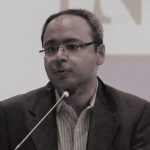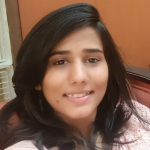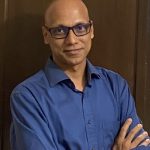What Did NLSIU Read in 2021? | Part II
January 14, 2022
Curious about what was on NLSIU faculty members’ reading list during 2021? We sure are! As we begin a new year, we asked our faculty members to reflect on the year that passed by and share with us some of the books they found most meaningful in 2021 and why.
We continue this series by featuring three NLS faculty members for this week. Find out what impressed them most about these books, and why it made it to the top of their lists.
 Dr. Saurabh Bhattacharjee
Dr. Saurabh Bhattacharjee
Title: No Land’s People
Author: Abhishek Saha
Why this is my pick: No Land’s People by Abhishek Saha is one of the most important books to be published in 2021, not just for its comprehensive account of the bureaucratic violence and the tragic human cost of the National Register of Citizens (NRC) process but also for its reflection on the import of the NRC on the meaning of citizenship in India. While there have been several journalistic accounts of the NRC and its discontent, ‘No Land’s People’ dives deep into the history of NRC 1951, anti-immigrant politics in Assam that predates independence, as well as the legal and administrative regimes created for detection and detection of ‘inflitrators’. Situating the NRC in this wider history of majoritarian politics and state politics, the book explores how the Supreme Court’s interventions, shaping the trajectory of NRC Assam, has institutionalised an exclusivist idea of Indian citizenship in Assam. As the author notes, “the idea of India as nation – spanning a multitude of identities and histories, ethnicities, languages and religions, nationalist and sub-nationalist movements- has always been a complex one”. Yet, NRC rejects that complex syncretic reality and has been weaponised to further a chauvinist conception of the nation and citizenship at the cost of creating a humanitarian cataclysm in Assam.
 Sharada R Shindhe
Sharada R Shindhe
Title: Noise: A Flaw in Human Judgement
Authors: Daniel Kahneman, Olivier Sibony, and Cass R. Sunstein
Why this is my pick: The book “Noise” has helped me understand the process of making a sound judgment. The title “Noise”, refers to the unwanted variability in decision making. The book focuses on the origin or sources of noise and mental mechanisms that give rise to this variability. It states that not all variability in decision making is a cause of worry since variability is universal and biologically driven. There are myriad factors that influence decision making. The book’s key theme is “wherever there is judgment; there is noise”. It begins with describing different components of error – bias and noise – and insists on overcoming them to improve the quality of our judgements. In order to overcome noise, one must first understand it, identify it and then address it. Authors talk at length about different factors contributing to noise and highlight the importance of measuring noise which they call it as ‘noise audit’. Most of the time, among other things, people rely on prediction, gut feeling and intuition while decision-making. Authors say that the judgments are less noisy and less biased when made by people who are well trained, more intelligent and have the right cognitive style. This book further discusses what is optimal noise and the costs of noise reduction. It examines the role of rules and standards in reducing noise and noise-reduction techniques. The book introduces the concept of ‘decision hygiene’ – techniques that reduce noise without ever knowing which underlying errors are targeted to avoid – and states that if decision hygiene is made part of the decision-making process, then chances of good decision making are more.
Authors ponder over mechanical decision-making by using algorithms and evaluate whether artificial intelligence can reduce noise. Finally, the authors urge organisations, both private and public, to conduct noise audits and make efforts to reduce noise. This book can help individuals and organisations understand how to make decisions and provide a pathway to better their decisions. Reflecting on the process of decision making and reducing noise is the crux of this book.
 Dr. Arun K Thiruvengadam
Dr. Arun K Thiruvengadam
Title: Home in the World: A Memoir
Author: Amartya Sen
Why this is my pick: The pursuit of ‘a life of the mind” – as academia is sometimes described – seems more challenging in our times. I turned to Sen’s memoir for insight as well as inspiration, and it did not disappoint. However, it will disappoint a reader who seeks the intricacies of his life story. Instead, the book upends some conventions of the genre, as biographical details appear to have been included only to provide the scaffolding for the many worlds of ideas that Sen traverses across these pages. Describing events from the late 1930s to the mid-1960s, the book covers his experiences across fascinating places and times: his early life in Dhaka, Mandalay and Calcutta in the lead up to Partition; his unusual schooling in Shantiniketan; college life in Presidency College, Calcutta and Trinity College, Cambridge; and teaching stints at Jadhavpur University, MIT, Stanford and the Delhi School of Economics. Yet, the focus throughout is on ideas and contests between concepts in the several places that Sen has called home. By drawing upon his rich and long life, Sen seeks to speak to contemporary contestations around remaining authentic to one’s tradition while adopting a rational yet progressive approach to issues of economics, philosophy, ethics and history. At a broader level, the book exemplifies what it means to be a ‘rooted cosmopolitan,’ to use Kwame Appiah’s formulation for the mindset that Sen embodies. The prose is clear and accessible, with a wry wit hovering in the background, making it a treat as much for the aspirant academic as for the veteran.

